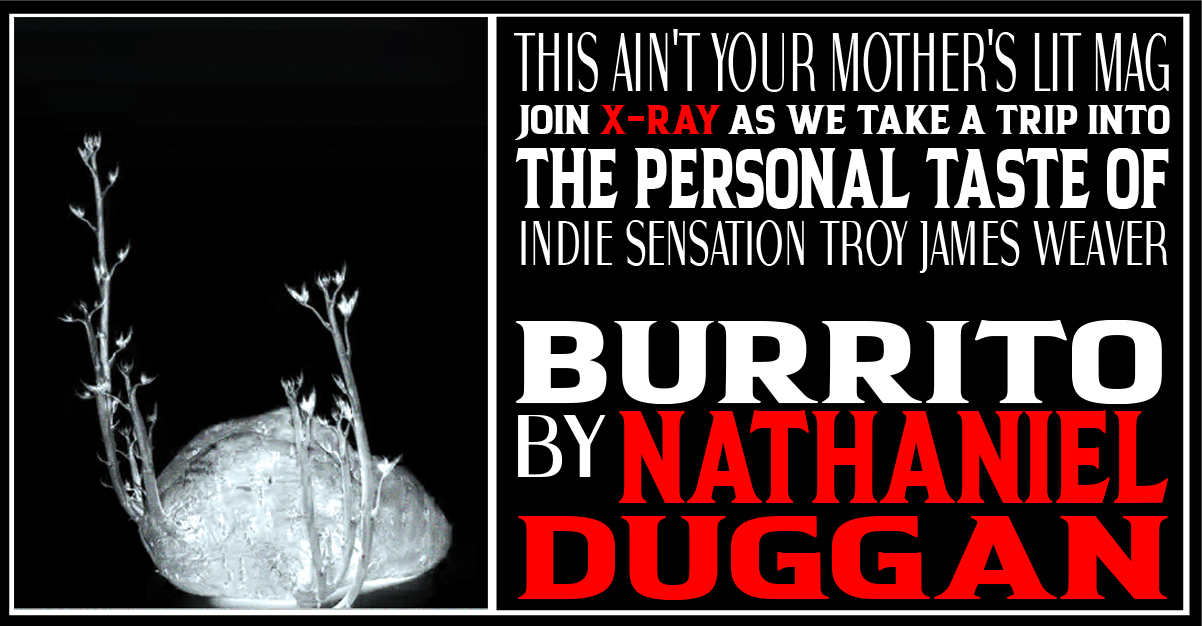I went to check out the new Mexican restaurant in town because I’d heard that was the sort of thing you were supposed to do when life itself had lost all meaning. Naturally my nemesis was there. This was a man who had taken everything from me, girlfriends, jobs, even the affection of my mother. He sat on the opposite end of the bar in a trench coat that seemed to have its own black gravity, pulling the flirting waitstaff toward him. I asked for a margarita. The bartender winked at me and said, “Careful! I make a mean margarita!” I scowled. People did not want to face this truth, but the whole world was mean. It was gritty and bad. It was like a Western where all the storefronts were fake cardboard cutouts and cowboys dueled you to the death for no reason. It was like how decades ago I’d canceled a dentist appointment because of a blizzard and never rescheduled. In fact, I’d then quit my career and spent the next few years more or less unemployed and drinking, failing to follow up on any obligation to work, family, lovers, whatever. Now I had periodontitis. The margarita was pink with a fruity tang. I decided to order the burrito. I pronounced “burrito” wrong. The word fell from me, flabbergasting and impossible. “We don’t do burgers here,” the bartender frowned. Life was like that, sometimes. It slipped on the slick tiles of the swimming pool surrounding your moated heart, and you wondered if someone, a janitor maybe, should’ve put a sign there—“warning: wet floor.” Nothing had ever been my fault, I suspected. My nemesis was now leering at me. He had a pretty woman on either side draping him. I asked for a potato and another margarita. “A potato?” the bartender echoed. Yes, a potato. I had to explain that while the menu did not explicitly include them, I knew this establishment was likely to possess potatoes in a cool basement cellar, for these were a common ingredient to deep fry and serve with chorizo. I was familiar with cultures, even if their words sometimes escaped me as if through secret passageways and trapdoors. I knew these things. I had already thought about and solved every possible geopolitical conflict that might occur for the next thousand years. The bartender stared back unhappily but put my order through to the kitchen. I winced down my second margarita. The bartender had been right—despite its playful pinkness, this drink was mean, the tequila a slap to the rot between my teeth. Not that pink was inherently gentle. Blood could be pink in the right lighting, or at least when portrayed in movies via food coloring. Birth could be. My gums were not pink. They had long since taken on the same pallid hue as clouds looming over a ruined beach vacation. When I’d finished the drink, I shook my head like a wet dog and growled for another. Instead, I was brought my potato on a small serving platter. This was not the finest of their potatoes. They had not given me their best. Ghostly sprouts protruded from it, intricate as tentacles. It looked like an alien squid, the clumps of dirt beneath it like patches of outer space. This was going in the review. I took no pleasure in the thought. Did they not know of the toxins contained in a potato’s blooming? I nodded a curt thank you and placed it in my pocket, tendrils and all. I started down the bar toward my nemesis. I could feel myself being wrenched toward him. Our feud was ancestral. It was the color of a torn bone. It was a soil so tainted every plant it bore tasted of rat poison, fertile and awful with death. I’d reached my nemesis. Grunting, I slammed the potato down before him with such force the drink in his glass trembled. The women encompassing him recoiled. All eyes in the room were on us now, the light gone from the afternoon. We were both staring at the potato. Actually, I could no longer even remember exactly why we were supposed to hate one another, unable to account for all the double crossings and betrayals, the spooled vengeance of myself tangled as a child’s clumsy knot. The potato just sat there between us. It was like a thing that could hatch and fly away.
Nathaniel Duggan is a former mattress salesman. His work has appeared previously in Hobart, X-R-A-Y Literary Magazine, and New World Writing, among others. He lives in Maine.
Art based on a design by Steve Anwyll.

